Veganism: Good for You and Good for the World
January 16, 2017
Since the dawn of its fame in the public eye, veganism has always borne a misunderstood reputation. Vegans are alleged as judgmental kale-eaters, eager to jump down the throat of every omnivore in sight and inspect whatever is inside of their stomach. Not only is this stereotype appallingly false, it also does not account for the social justice issues advocated by the vegan lifestyle. Veganism is more than just what you eat–it’s about saving the world.
The Vegan Society describes veganism as “a way of living which seeks to exclude, as far as is possible and practicable, all forms of exploitation of and cruelty to animals for food, clothing, or any other purpose.” Essentially, vegans do not eat or use any type of animal product. Vegan value systems usually take the form of three major priorities: environment, ethics, and health. And unlike the media portrays them, the vegans I know are some of the most compassionate and nonjudgmental people on the planet.
“My transition to veganism was entirely caused by the desire to align my beliefs with my actions,” said senior Melissa Patterson. “It was certainly a shock to discover that so much of what I had learned about the world around me was a façade to protect my innocence. I could no longer rescue animals of a specific species while digesting the rotting flesh or secretions of others.” As founder of Cleveland’s Animal Advocacy club, Patterson is no stranger to the cruelty unleashed onto animals by the meat and dairy industries. “There are so many animals mistreated by the industry for the triviality of human want. I find it particularly horrifying that these animals of different species have the capacity to feel the same feelings as humans. [They are] living, sentient beings,” said Patterson.
Nina Sandoval, vegan and founder of Cleveland’s Vegetarian and Vegan Club, defined her introduction to the horrors of the meat and dairy industries as the turning point in her vegan journey. “I learned about the cruelty of slaughterhouses and factory farms,” said Sandoval. “When I learned about the treatment of baby boy chicks—who are typically murdered after birth because they cannot produce eggs—I officially gave up on all animal products.”
“One of the issues that has particularly affected my heart is the dairy industry,” described Patterson. “In order to produce gallons and gallons of milk, a cow needs to have tons and tons of babies. They take an enormous stick and artificially inseminate the mother cow. It’s commonly called a rape rack. Then the cow gives birth to her baby and can she can often only spend a day to a week with her calf [before] they make it into veal.” Commented Patterson, “The veal industry is unspeakably horrendous.”
In addition to minimizing and fighting against animal cruelty, many advocates choose to take the plunge into veganism due to its health benefits. According to the Vegan Resource Group, a 2012 study that included over 120,000 people found that vegetarians have a 29 percent lower risk of death from cardiovascular disease than meat-eaters. Vegan and vegetarian diets are also commonly associated with lower blood pressure and lower hypertension risk. The National Cancer Institute estimated that 11 percent of deaths in men and 16 percent of deaths in women could be prevented simply by reducing red meat consumption. Studies have shown that red meat in particular is linked to all sorts of health problems, including type 2 diabetes, colorectal cancer, breast cancer, and hypertension. In fact, the World Health Organization (WHO) actually declared meat as “carcinogenic to humans.”
Similarly, meat is often polluted with feces, blood, and other bodily fluids, according to People for the Ethical Treatment of Animals (PETA). Animal products comprise 70 percent of all cases of food poisoning in the U.S. In fact, scientists at the Johns Hopkins Bloomberg School of Public Health tested supermarket chicken flesh and found campylobacter, a dangerous bacterium that causes food poisoning, in 96 percent of Tyson chicken tested. Talk about disgusting.
Aside from the obvious health benefits of a vegan lifestyle, many vegans are profoundly impacted by something much more monumental and global than many people realize: animal agriculture. According to “Cowspiracy,” a 2014 documentary produced by Kip Andersen, animal agriculture is unquestionably the leading cause for global warming. Environmentalists often mistake fossil fuels and carbon dioxide (CO2) emissions as the evils that are heating up the planet the fastest. This is just plain incorrect.
Through digestion, cows and other livestock produce methane gas in large quantities. If you’ve ever driven through Tillamook on your way to the beach, you would be able to confirm this, simply by the noxious scent infiltrating your nostrils. It is unmistakable: the same putrid, rotten egg smell that escapes from your fridge after a week-long vacation. This is methane gas, a substance 86 times more destructive than CO2 from vehicles. It is also the main source that is setting fire to the planet. “My calculations are that without using any gas or oil or fuel ever again from this day forward, we would still exceed our maximum carbon equivalent greenhouse gas emissions—the 565 gigatons—by the year 2030,” said Dr. Richard Oppenlander, environmental researcher. This is without considering the electricity or energy sectors; it is all simply by raising and eating livestock.
Besides being the biggest polluter, animal agriculture reigns king of many things, including being the champion of resource consumption and environmental degradation. The act of raising animals for food is responsible for 30 percent of global water consumption, causes 91 percent of Amazon rainforest destruction, occupies 45 percent of Earth’s land, and is the leading cause of species extinction, habitat destruction, and ocean dead zones.
To add insult to injury, 795 million people in the world do not have enough food to eat. Yet, worldwide, 50 percent of the grains and legumes we are growing are being fed to livestock. It is overwhelmingly selfish: we could feed all the world’s people if we stopped feeding our obsession with meat.
Lizzy May, a senior who practices veganism, describes the environmental destruction inflicted by the meat and dairy industries to be the most powerful influencer in her switch to veganism. “We are ruining our planet with the meat industry and the dairy industry,” said May. The destruction to the environment is “irreversible, and it’s the leading factor to global warming. It’s also not really recognized by a lot of people.”
For May, Sandoval, and Patterson, the vegan lifestyle is a powerful way to impact one’s own health and the health of the planet. Unfortunately, veganism is not accessible to everyone. In many cases, buying the fruit and vegetables necessary to stay healthy on a vegan diet is simply not possible. Unfortunately, meat is still the cheaper alternative for many people. For this, May encourages consumers to be conscious of the companies they support. “Your dollar is your vote,” said May. “Your dollar gets to choose what is on the market and what is making the most money.” Choose carefully.
Vegans might have a poor reputation for a vicious attitude, but this stereotype only holds validity when applied to their passionate devotion to bettering the planet. Veganism is “quietly and unmistakably the most powerful thing that someone can do for the environment,” said Demosthenes Maratos of the sustainability institute at Molloy College. “No other lifestyle choice has a farther reaching and more profoundly positive impact on the planet and all other life on Earth than choosing to stop consuming animals and live a vegan lifestyle.”
“I am afraid for the future of our planet and I am resentful to past generations for allowing me to inherit this,” said Patterson. “Veganism allows me to take steps in my everyday life to better the world, and with those who are able now, we can make big changes.”
Even though this information is clear to see, many vegans still receive pushback from those who believe their efforts are too small to make a difference. To those who tell her this, Sandoval said, “When I opted for a berry smoothie and peanut butter banana toast this morning rather than eggs and bacon, it made a difference to the life of that pig and hen. Just like with every movement, change takes time and begins with forward-thinking people. I do not believe that any action is too small to make a difference.”
If the world went vegan, we would be able to reverse the effects that human greediness has had on the Earth. We would conserve water. Our health would be better. We would save the lives of so many loving animals. Our oceans would be cleaner. Our forests would begin to grow the natural, luscious life that once was. We could save the world.
Just think about it. If veganism is not a viable option for you or your family, try to appreciate, congratulate, or thank a vegan you may know. Even though their change in lifestyle is a small step for one person, it is a giant step for mankind.



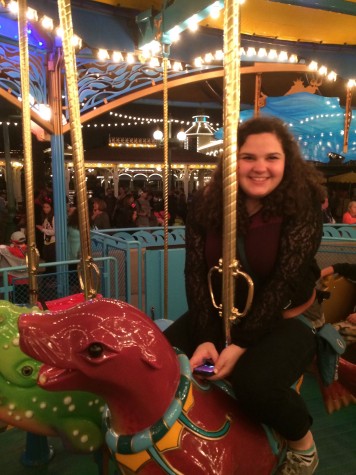



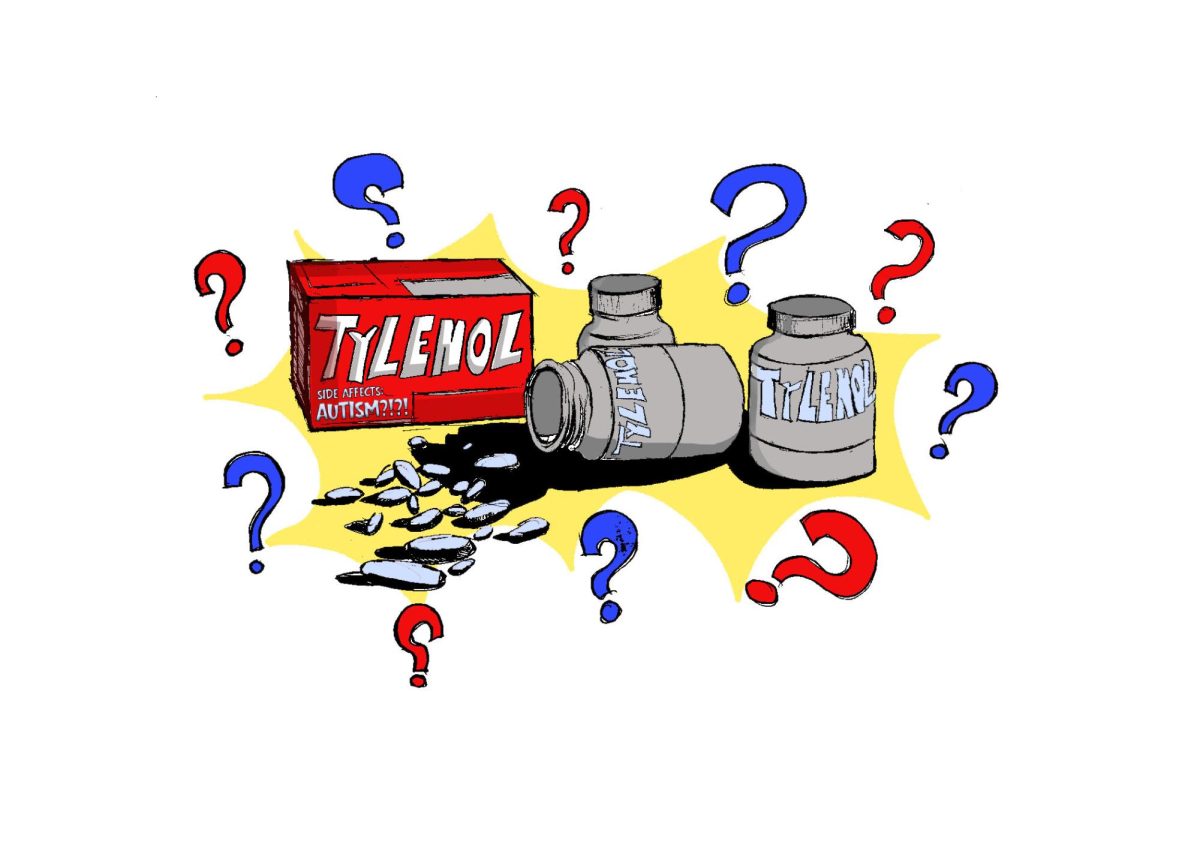
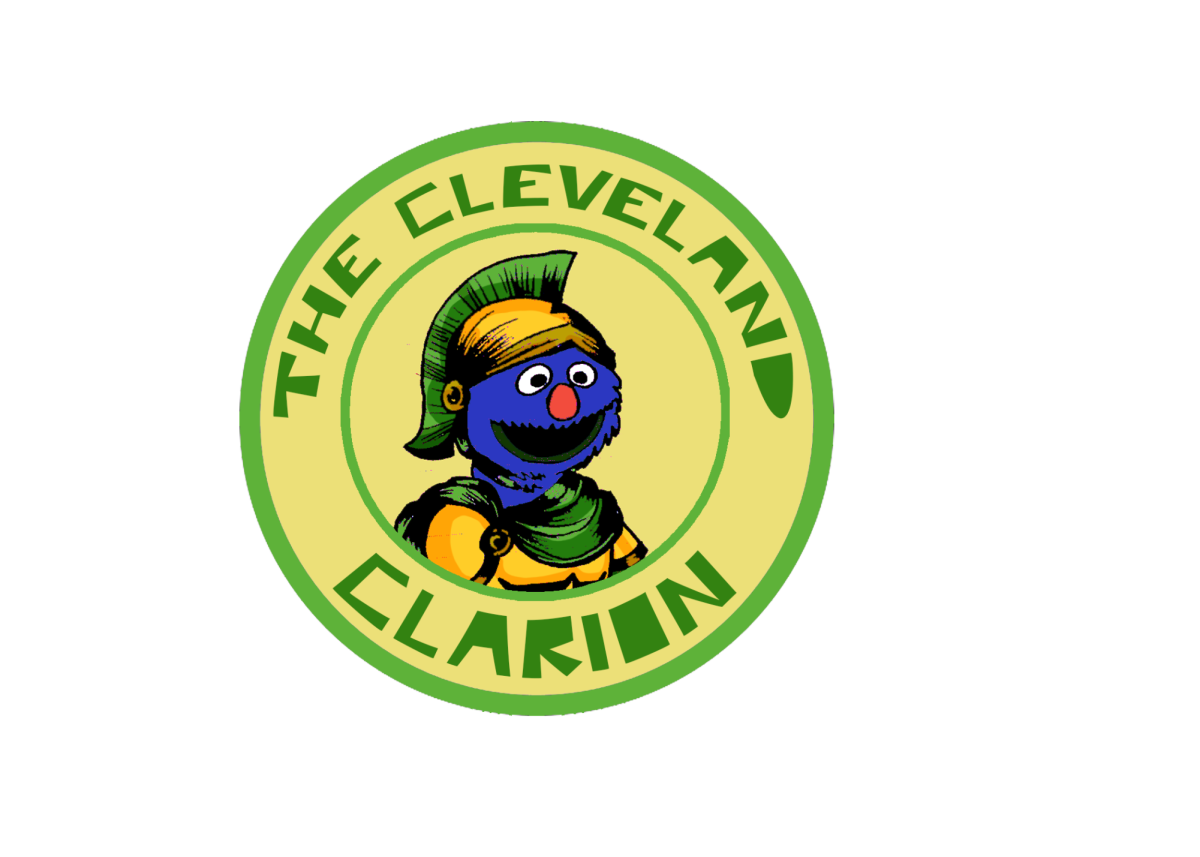

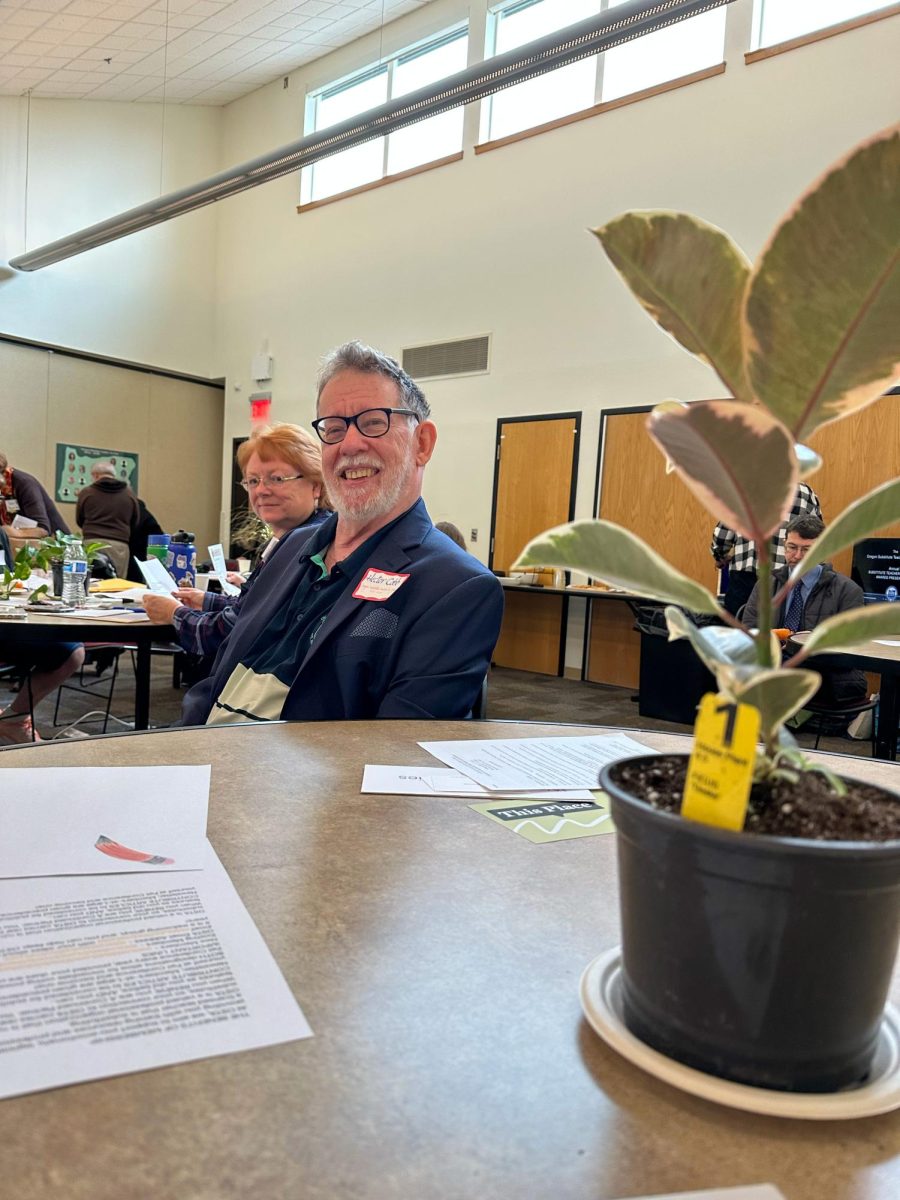


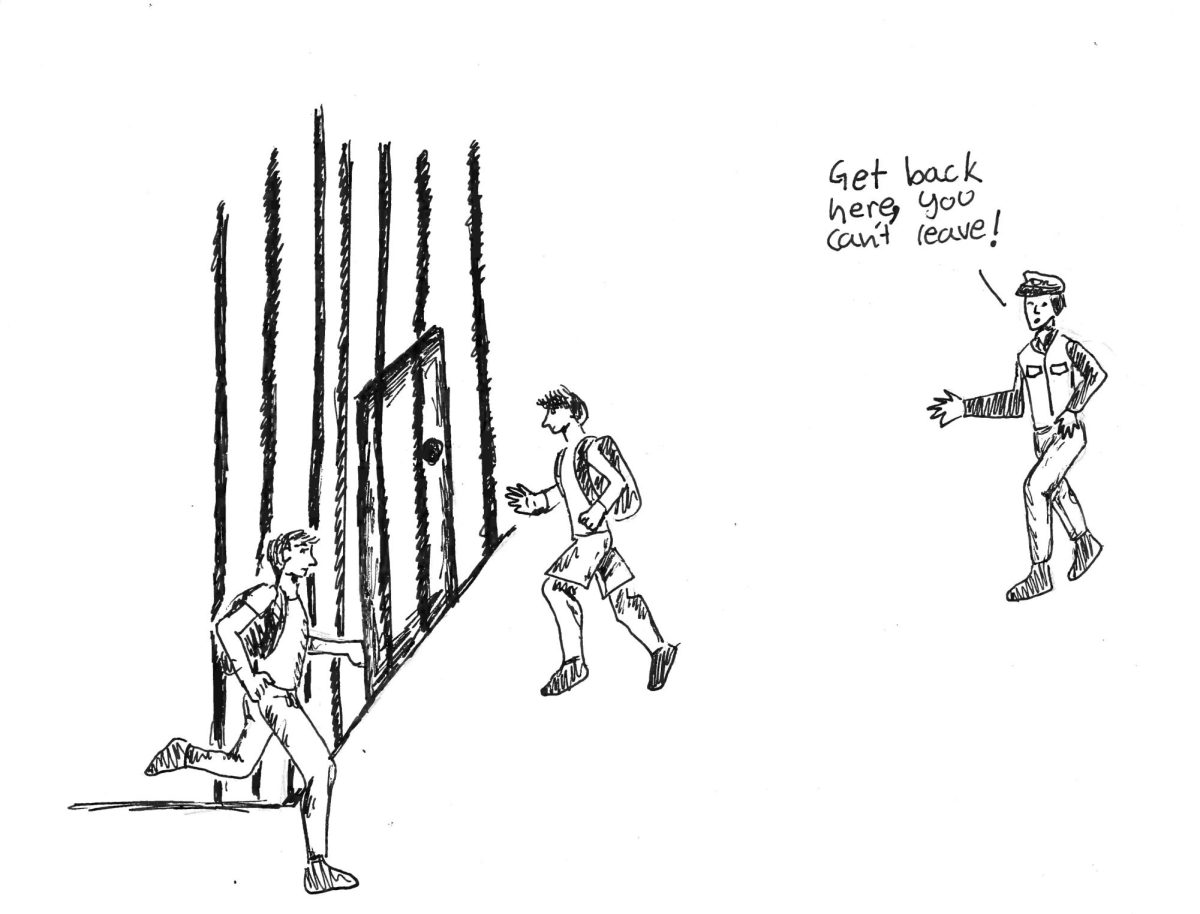
Dwayne Elrod • Feb 27, 2017 at 9:54 PM
Lovely article, though I must inquire if the author is actually a vegan. If that happens to not be the case, I would just like to give a little happy smile to all the absolutely wonderful hypocrisy in this piece.
🙂
If she is, carry on.
Regards,
Dwayne Elrod